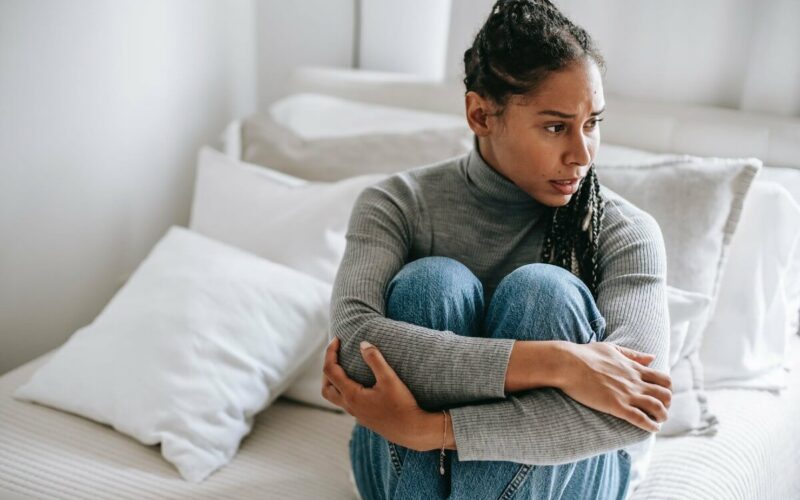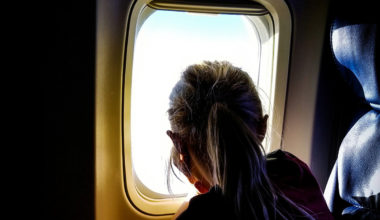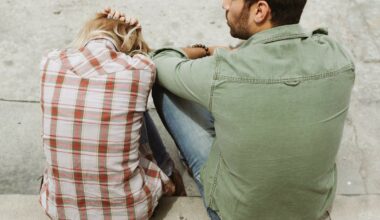Many different types of phobia can develop due to trauma, such as nosophobia (fear of having a disease) and atychiphobia (fear of being failure). But in this article, we’ll be focusing on autophobia, also known as monophobia, is the intense fear of being alone, and it can cause severe anxiety and apprehension.
For someone living with autophobia, being by themselves even in a safe, comfortable space like their own home, can be stressful and even frightening. This irrational fear is much more serious than normal feelings of loneliness. In fact, it often doesn’t even need to come to fruition…for many people living with a phobia of being alone, even just the thought of being alone can be enough to cause tremendous anxiety and stress.
To best answer the question: what is autophobia, let’s look at symptoms, how it’s diagnosed, and factors that increase risk. Treatment options, including certain lifestyle modifications, will also be explored as we cover this type of phobia that often results in a debilitating condition.
“There is a difference between being alone and feeling lonely. When you have a fear of being alone, it may bring up a lot of feelings of anxiety. If this brings up feelings of panic or is having a negative impact on a few areas of your life, it would be important to speak with a therapist to process what is coming up for you, so you can get the support you deserve.”
Symptoms of Autophobia
An estimated 12.5% of adults in the United States deal with some type of specific phobia in their life. Autophobia is just that, a type of phobia, not an official diagnosis.
People with autophobia believe they need others near them to be safe. Having a true phobia (as opposed to just having a few symptoms periodically) is serious. It can cause you to function poorly in life and have difficulties maintaining healthy relationships. It’s more than just being concerned about something.
People with autophobia can experience unique psychological and physical symptoms, which may include:
- Chest tightness, rapid heartbeat, and difficulty breathing when alone
- Feeling like they’re alone or ignored, even in a large, friendly crowd
- Taking reasonable measures to ensure they’re not ever left alone
- Feeling intense anxiety that’s excessive for the situation
- Feeling anxious when thinking about spending time alone
- Nausea, dizziness, and/or fainting when alone
- Believing catastrophe will strike if left alone
- Have panic attacks when thinking about or being alone
Autophobia causes irrational fear even when you know you’re in a safe environment. You may feel that you’re in danger from any number of things. You might have a fear of robbers, muggers, strangers, or even friends.
Some people with autophobia feel that they’re doomed to develop a sudden, serious medical condition. Others constantly feel unwanted and unloved. Still, others hear unexplained noises at random times.
Those living with autophobia may not function properly until their extreme fear subsides. Though they’re completely safe with no threats present, they cannot control their psychological and physical symptoms.
Causes of Autophobia
Researchers aren’t sure what causes a phobia of being alone. So, what is autophobia? Like other phobias, monophobia is marked by an irrational fear that might result from childhood trauma or adversity. It can also be a learned behavior from someone with the condition like a parent or close friend.
Children can develop autophobia after experiencing:
- General neglect
- Parental divorce
- Parental mental condition
- Parental drug addiction
- Physical or sexual abuse
- Long-term familial poverty
- Death of a parent, sibling, or other loved one
- Long-term separation from one or both parents
Unfortunately, even though we don’t know what causes autophobia yet, little research has been completed on it.
How is Autophobia Diagnosed?
Doctors and therapists look for various discrete fears in people who may have autophobia. These fears may or may not be related to the fear of being alone, but they’re indicative of possible causation. They may include:
- Fear of being at home alone
- Fear of being in public alone
- Sensing danger when none is present
- Fear of separation from a particular person
- Persistent feelings of isolation and of being ignored by others
Other factors will be considered, too, like if someone lives alone, suffers from chronic loneliness, or has endured long-term solitude. All of these could contribute to the development of autophobia.
To confirm autophobia, a doctor will conduct a physical and explore the patient’s medical history. This helps to ensure that another condition is not causing the fear. Like other phobias, autophobic symptoms must be present for at least 6 months. Additionally, the fear of being alone must be so intense and regular that it interrupts normal life and daily functioning. Loneliness, even excessive amounts of it, is not sufficient to warrant a label of autophobia.
Treatment for Autophobia
Clinical treatment options for autophobia are the same as the treatment options for other phobias. All phobias are based on the expression of irrational fears, and treatment aims to alleviate these fears. Treatment is centered on helping you recognize and understand your condition better so that you can take steps to reduce the frequency and intensity of your episodes.
Autophobia treatment typically involves a combination of:
Psychotherapy
Techniques like exposure therapy & cognitive behavioral therapy (CBT) are often used. Exposure therapy gradually and progressively exposes you to whatever you fear in a safe, controlled manner and environment. CBT combines various practical methods to help you better cope with the extreme anxiety that results from your fear.
Prescription medications
Beta-blockers and benzodiazepines can also be used. Beta-blockers inhibit the actions of adrenaline (epinephrine) to keep your heart rate slow and blood pressure down and to dilate the blood vessels to accommodate blood flow. Benzodiazepines slow down messaging between the brain and body and induce a mild tranquilizing effect.
Lifestyle modifications
Many people experiencing autophobia find it beneficial to learn and routinely practice certain lifestyle habits that help to calm the mind, enhance focus, reduce anxiety, and restore normal function sooner when an autophobic episode attacks them.
If you believe you have autophobia, consider the advantages of yoga, mindfulness meditation, pranayama (deep breathing exercises), various possible forms of semi-strenuous exercise, an intentionally positive attitude, and proper nutrition. All of these might help reduce or relieve the symptoms of autophobia over time.
“The lockdown during the pandemic could have contributed to facing the fear of being alone and resulted in coping with this fear in unhealthy ways, such as alcohol, overeating, or even suicidal thoughts. Know that you’re not alone, and that help is always out there, so feel free to contact a therapist to talk through treatment options that are right for you.”
Consider What Works for You
Different people respond to being alone differently. Many people openly state that they don’t enjoy or like to be alone. However, they don’t take the fear of being alone to the level that someone with autophobia does.
People with genuine autophobia become severely anxious about being alone. They’re willing to go to great lengths to ensure that they’re not left by themselves — this is often taken to the point of irrationality. Left unaddressed, the condition can disrupt normal life functioning and, ultimately, happiness.
If you believe that you are experiencing autophobia, know that help is available. Many people find they’re able to reduce or completely resolve their symptoms through proper treatment and self-dedication to the healing process. Treatment will help you understand the thoughts and feelings that cause your autophobic reactions. If your symptoms don’t disappear completely with regular treatment, you can take comfort in knowing they’ll likely be significantly reduced.
If you or someone you care about is suffering from autophobia to the point where it’s disrupting life, there is help out there. The next step is deciding it’s time to find it so you can start overcoming your phobia.
Sources:
1. Specific phobia. National Institute of Mental Health. https://www.nimh.nih.gov/health/statistics/specific-phobia. Accessed December 23, 2021.
2. Eaton W, Bienvenu O, Miloyan B. Specific phobias. The Lancet Psychiatry. 2018;5(8):678-686. doi:10.1016/s2215-0366(18)30169-x. https://www.ncbi.nlm.nih.gov/pmc/articles/PMC7233312/. Accessed December 23, 2021.
Talkspace articles are written by experienced mental health-wellness contributors; they are grounded in scientific research and evidence-based practices. Articles are extensively reviewed by our team of clinical experts (therapists and psychiatrists of various specialties) to ensure content is accurate and on par with current industry standards.
Our goal at Talkspace is to provide the most up-to-date, valuable, and objective information on mental health-related topics in order to help readers make informed decisions.
Articles contain trusted third-party sources that are either directly linked to in the text or listed at the bottom to take readers directly to the source.




